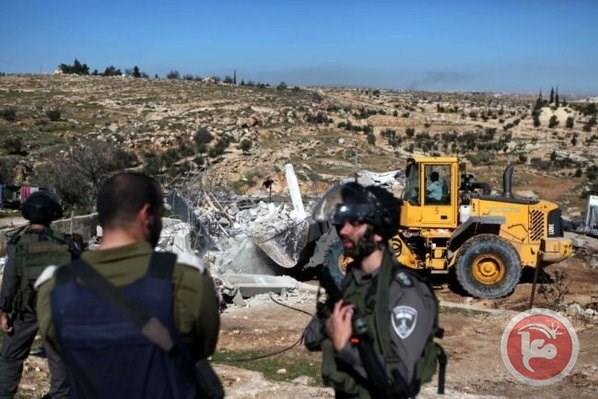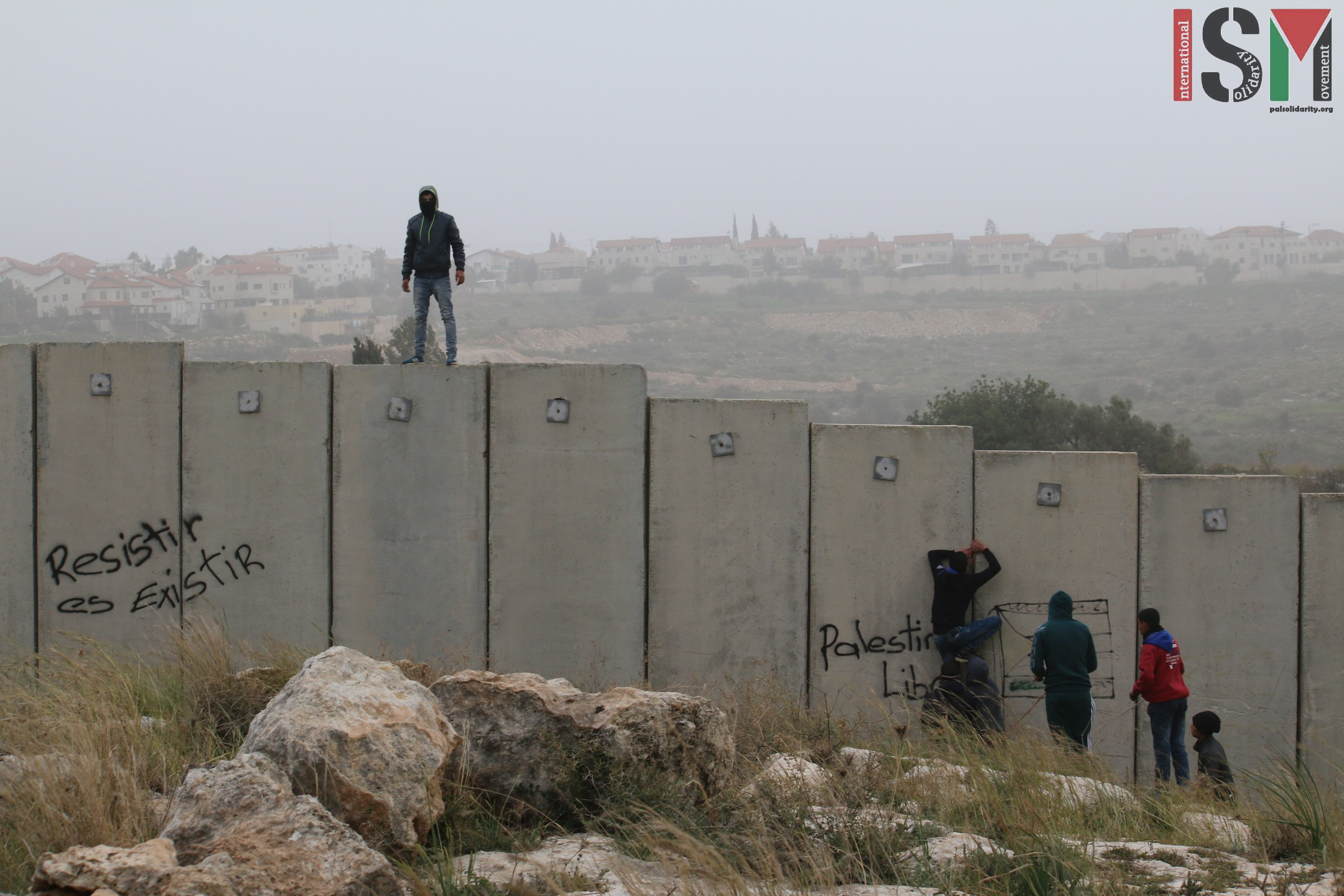Tag: Israeli Army
-
Israeli forces rebuild roadblock in Kafr Qaddum
16th January 2016 | International Solidarity Movement, Tulkarem team | Kafr Qaddum, occupied Palestine On the 16th of January, Israeli forces shot a young protester with live ammunition while the villagers of Kafr Qaddum were protesting the theft of their land. The Israeli military also rebuilt a roadblock, restricting the movement of the villagers even further.…
-
Four shelters and one water tank destroyed in Tubas
January 16th 2016 | Jordan Valley Solidarity | Tubas, occupied Palestine At 6 am on 14th January 2016 the Israeli occupation army entered Tubas area, with twelve jeeps and two bulldozers, destroying four shelters and a water tank. In December 2015 the army gave the order for demolition of the shelters, obliging the owners…
-
Weeks of repression and resistance in Ni’lin
15th January 2016 | International Solidarity Movement, Ramallah team | Ni’lin, occupied Palestine A walk through the olive groves of Ni’lin village, down the dirt road between stone walls and cacti and past the scattered remnants of spent tear gas canisters, grenades and bullet casings reveals a striking vista: the Israeli-constructed, illegal Apartheid Wall cuts sharply across…



